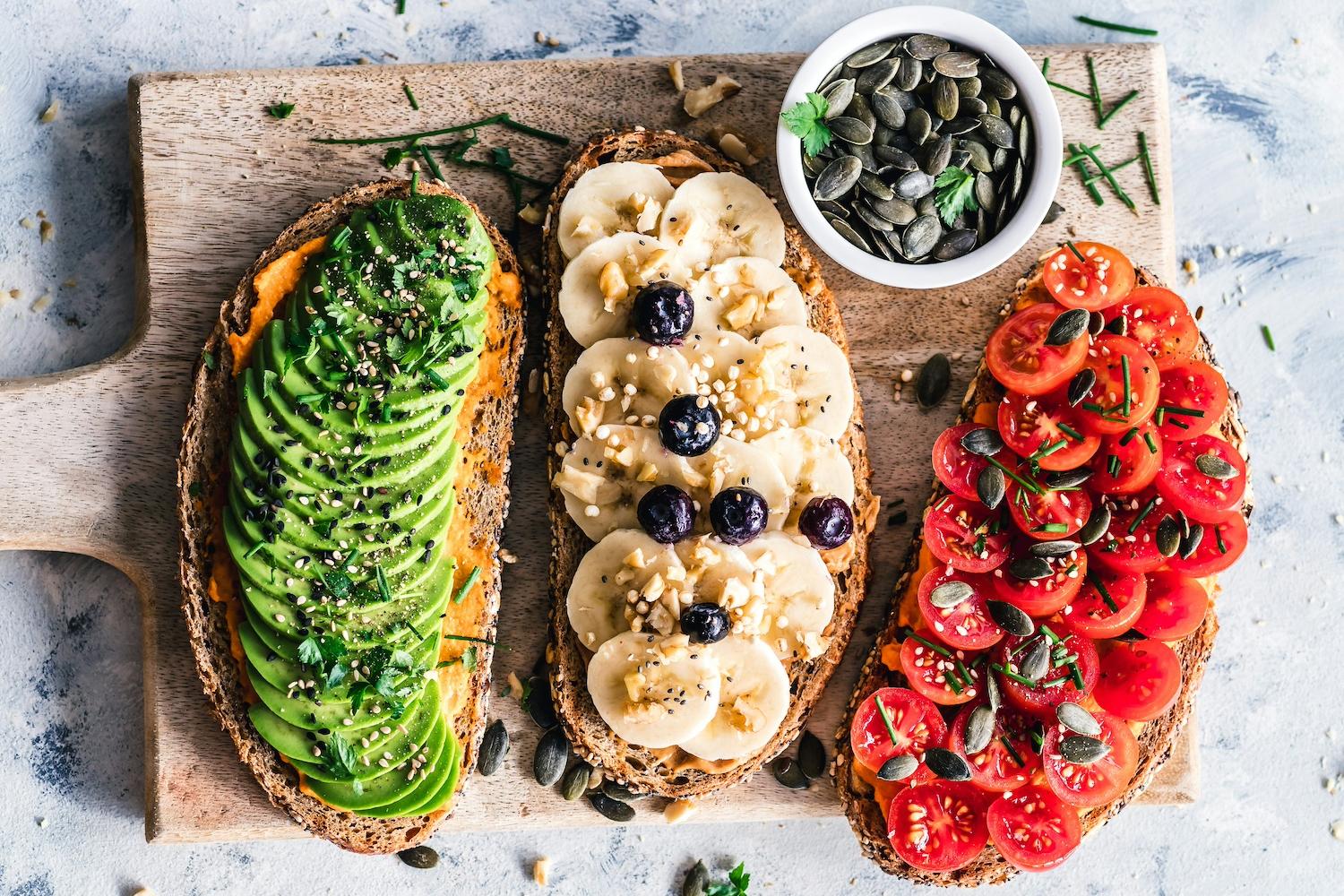Everything About Healthy Food: Advantages of Enjoying Plant Based Options
The conversation bordering plant-based diet regimens has gained considerable interest in recent years. Several people are discovering the possible wellness advantages, nutritional advantages, and ecological influences linked with these nutritional options. As people end up being more knowledgeable about their food's impact on wellness and sustainability, concerns develop regarding the functionalities of taking on such a way of life. What particular changes can one anticipate, and just how might these selections improve not just personal health yet additionally the planet's future?
Understanding Plant-Based Diets
Although several individuals link plant-based diet regimens mainly with vegetarianism or veganism, these diet plans can encompass a large array of eating patterns that focus on whole, minimally refined plant foods. Such diet plans often consist of fruits, vegetables, whole grains, nuts, legumes, and seeds, while limiting or removing pet products. This adaptability allows individuals to tailor their nutritional choices according to personal preferences and nutritional needs. Some may take on a mainly plant-based diet while still occasionally consuming meat or dairy, often referred to as a flexitarian strategy. The emphasis stays on including even more plant foods, which can lead to a diverse selection of flavors and meals. Comprehending these different interpretations of plant-based consuming is necessary for appreciating its access and appeal in modern food society.
Wellness Perks of Plant-Based Foods
The health and wellness advantages of plant-based foods are considerable, offering a nutrient density benefit that sustains general well-being. Research suggests that these foods can boost heart wellness and play a crucial role in effective weight management. By incorporating more plant-based alternatives, individuals might improve their dietary choices and promote lasting health.
Nutrient Density Benefit
Nutrient thickness plays an essential role in the health and wellness benefits of plant-based foods, making them a compelling choice for those seeking a balanced diet. Plant-based foods, such as fruits, vegetables, legumes, nuts, and entire grains, are frequently rich in vital vitamins, minerals, and antioxidants while being lower in calories. This high nutrient thickness enables individuals to consume less calories while still meeting their nutritional needs. In addition, these foods are loaded with nutritional fiber, advertising digestive wellness and helping in weight administration. By integrating nutrient-dense plant-based choices, consumers can boost their general health and wellness, support their immune systems, and reduce the threat of chronic conditions. Eventually, the nutrient density of plant-based foods underscores their importance in a health-conscious way of living.
Heart Wellness Enhancement

Weight Management Assistance
Along with promoting heart health, a plant-based diet regimen can significantly aid in weight monitoring. This dietary approach highlights whole foods such as fruits, veggies, vegetables, nuts, and whole grains, which are normally reduced in calories and higher in fiber contrasted to animal-based products. The high fiber web content assists boost satiety, lowering general calorie intake. Additionally, plant-based diets are commonly rich in necessary nutrients while low in undesirable fats, making it easier to preserve a healthy weight. Gluten Free BBQ Sauce. Research study indicates that individuals that adopt a plant-based way of life often tend to have lower body mass indexes (BMIs) and experience even more effective fat burning compared to those who eat meat-heavy diet plans. Embracing plant-based options is a critical choice for effective weight administration.
Nutritional Worth of Plant-Based Ingredients
Plant-based components are abundant in necessary nutrients, offering a diverse variety of vitamins, minerals, and anti-oxidants that add to total health. A comparison of protein resources exposes that while pet items are usually considered as exceptional, lots of plant-based choices supply sufficient protein and other useful compounds. Recognizing the dietary worth of these active ingredients can assist individuals make notified dietary options.
Important Nutrients in Plants
Nutrient-rich ingredients found in plants provide a diverse array of crucial vitamins and minerals that add greatly to total wellness. These components are rich in vitamins A, C, and K, which support immune function, vision, and blood clot, specifically. Furthermore, plants provide important minerals such as potassium, magnesium, and calcium, crucial for heart health, muscle function, and bone strength. The visibility of fiber in plant-based foods aids food digestion and advertises a healthy and balanced digestive tract microbiome. Antioxidants, located generously in fruits and veggies, help battle oxidative tension and decrease inflammation. Many plant foods are reduced in calories yet high in nutrients, making them an excellent option for those seeking to preserve a healthy weight while making certain optimal nutrient consumption.

Comparing Protein Resources
Healthy protein resources vary significantly in their nutritional profiles, with plant-based components providing distinct advantages. Unlike pet healthy proteins, which often contain hydrogenated fats and cholesterol, plant healthy proteins have a tendency to be lower in these undesirable components. Legumes, nuts, seeds, and entire grains are abundant in necessary amino acids, fiber, vitamins, and minerals. Lentils supply high healthy protein content along with considerable iron and folate, while quinoa is a complete healthy protein, offering all 9 necessary amino acids. Additionally, plant-based healthy proteins are typically gone along with by antioxidants and phytochemicals that sustain general health. The change to plant-based protein resources not just enhances dietary intake but additionally aligns with sustainable dietary practices, decreasing ecological impact and advertising long-term wellness benefits.
Environmental Influence of Plant-Based Eating
As recognition of environment modification expands, lots of people are Visit Your URL checking out sustainable nutritional options that can substantially reduce their ecological impact. Plant-based eating has actually emerged as a considerable factor to minimizing greenhouse gas emissions, which are mostly related to livestock manufacturing. The cultivation of fruits, veggies, grains, and legumes commonly requires fewer sources, such as water and land, contrasted to animal farming. Furthermore, plant-based diet regimens can bring about decreased deforestation, as much less land is required for grazing animals or growing animal feed. By moving in the direction of plant-based options, consumers can support biodiversity and promote much healthier environments. Generally, welcoming plant-based eating not only benefits individual wellness but also represents an important step toward environmental sustainability and conservation initiatives.
Overcoming Common Misconceptions
While several people identify the advantages of a plant-based diet regimen, a number of misconceptions frequently discourage them from completely embracing this way of life. An usual idea is that plant-based diet plans lack sufficient healthy protein; however, numerous plant sources, such as beans, nuts, and tofu, give enough protein. Furthermore, some assume that this diet is pricey, when actually, staples like beans, rice, and seasonal vegetables can be quite budget-friendly. One more false impression is that plant-based consuming is extremely limiting, whereas it really provides a varied variety of tastes and foods. Numerous stress that a plant-based diet plan might lead to deficiencies, yet with correct planning, people can acquire all necessary nutrients, consisting of minerals and vitamins, while enjoying a vast variety of tasty meals. Large Tips for Transitioning to a Plant-Based Way of life
Making the change to a plant-based lifestyle can be an enhancing experience, though it typically requires some support to browse the preliminary adjustments. First, individuals are urged to start progressively, including even more fruits, veggies, beans, and whole grains into their dishes while decreasing meat and milk consumption. Meal planning is crucial; preparing a weekly menu can aid reduce the change and stop final harmful choices. Discovering cooking approaches and new dishes can additionally preserve and improve the experience exhilaration regarding plant-based consuming. In addition, signing up with assistance groups or areas can provide motivation and share important ideas. Staying informed about nutrition guarantees well balanced dishes, stopping shortages while promoting a healthy, enjoyable plant-based lifestyle.

Delicious Plant-Based Dish Ideas
Discovering delicious plant-based meal concepts can inspire people to embrace a much more nourishing diet. One popular choice is a passionate quinoa salad, featuring cherry tomatoes, cucumber, and a tangy lemon-tahini clothing. One more fave is a tasty lentil stew, loaded with carrots, celery, and fragrant hop over to these guys herbs, perfect for a soothing supper. For breakfast, overnight oats made with almond milk, chia seeds, and covered with fresh berries offer a nourishing start to the day. Furthermore, a vivid veggie stir-fry with tofu and a variety of vivid veggies can be a quick yet satisfying meal. Creamy avocado toast on whole-grain bread, sprinkled with seeds and flavors, offers a basic yet savory treat. These dishes display the selection and richness of plant-based eating.

Frequently Asked Inquiries
Can a Plant-Based Diet Regimen Give Sufficient Protein?
The question of whether a plant-based diet regimen can supply sufficient protein prevails. Countless resources, including beans, nuts, seeds, and entire Check This Out grains, can fulfill protein requires successfully, supporting a nutritious and well balanced diet plan for people.
Are Plant-Based Diet Plans Appropriate for Children?
The viability of plant-based diets for youngsters depends upon mindful preparation. Appropriate nutrients should be assured, including vitamins, minerals, and healthy proteins. With proper advice, such diet plans can sustain healthy and balanced growth and development in kids.
Just how Do I Dine Out on a Plant-Based Diet regimen?
Dining out on a plant-based diet plan entails seeking dining establishments with diverse menus, requesting for alterations, and checking out vegan-friendly alternatives. Planning ahead and interacting nutritional choices can enhance the dining experience while keeping dietary choices.
What Are Usual Allergens in Plant-Based Foods?
Typical irritants in plant-based foods consist of soy, gluten, nuts, and seeds - Gluten Free BBQ Sauce. Individuals adhering to a plant-based diet ought to understand these irritants and review labels meticulously to avoid unfavorable responses and ensure secure consumption
Can Plant-Based Diets Aid With Weight Loss?
Research suggests that embracing a plant-based diet may assist in fat burning due to its generally reduced calorie density and higher fiber content. This combination can enhance satiety, aiding people handle their calorie consumption properly. Several people connect plant-based diet plans primarily with vegetarianism or veganism, these diet plans can include a vast range of eating patterns that focus on entire, minimally processed plant foods. Nutrient thickness plays an important role in the health and wellness benefits of plant-based foods, making them a compelling selection for those looking for a well balanced diet. Plant-based diets have been revealed to markedly boost heart wellness, as they typically consist of aspects that sustain cardiovascular feature. In addition to promoting heart wellness, a plant-based diet plan can significantly aid in weight management. An usual idea is that plant-based diets do not have adequate protein; nevertheless, many plant sources, such as beans, nuts, and tofu, supply sufficient healthy protein.
Comments on “5 Creative Plant Based Chicken Dishes That Go Beyond the Basics”